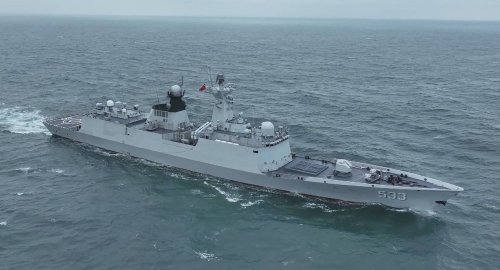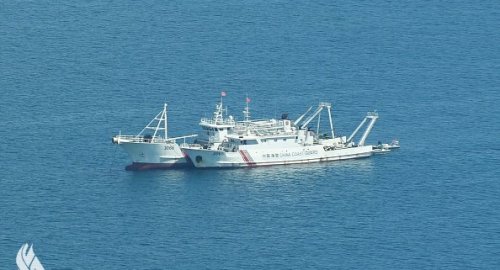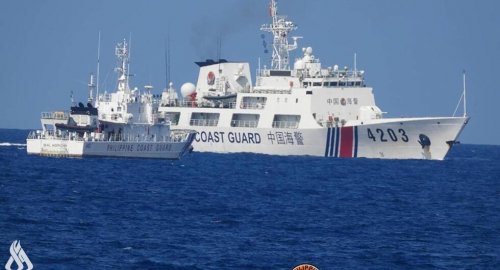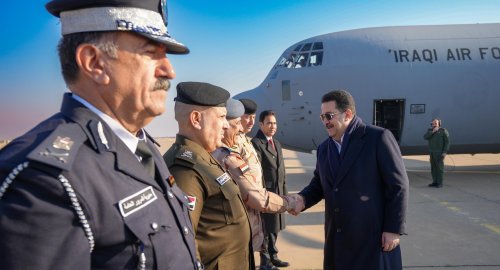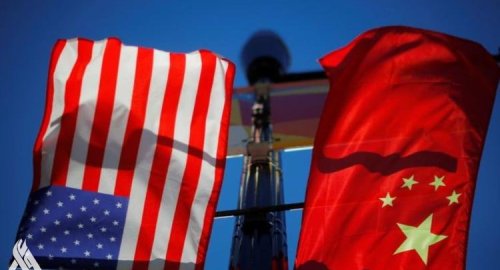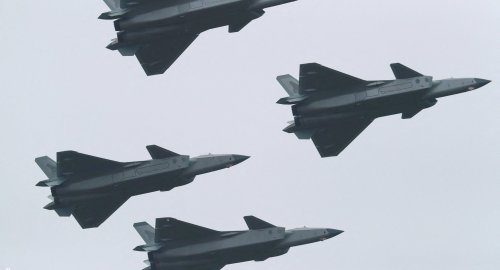
Taiwan detects record 153 Chinese military aircraft after drills

- 15-10-2024, 08:08
INA- sources
The aircraft were spotted in the 25 hours to 6:00 am on Tuesday (2200 GMT Monday), the defence ministry said in a statement -- the most for a single day.
Beijing deployed fighter jets, drones, warships and coast guard boats to encircle Taiwan on Monday, with Taiwan responding by dispatching "appropriate forces" and placing its outlying islands on heightened alert.
Taiwan condemned China's actions as "irrational and provocative", and the US called them "unwarranted".
Japan said Tuesday it had expressed its "concerns" to China over the drills, and scrambled fighter jets near its southern island of Yonaguni.
"The government is closely monitoring the related activities with great interest, and has conveyed Japan's concerns to the Chinese side," deputy chief cabinet secretary Kazuhiko Aoki told reporters.
China claims Taiwan as part of its territory and insisted Monday it will never renounce the use of force to bring the island under its control.
Beijing has ramped up military pressure on Taipei in recent years to accept its claims of sovereignty over the island, and Monday represented the fourth round of large-scale drills in just over two years.
Taiwan's defence ministry also recorded 14 Chinese navy ships in the latest 25-hour period, slightly fewer than the 17 announced Monday afternoon.
Of the aircraft spotted, 111 crossed the median line of the sensitive Taiwan Strait that separates mainland China and Taiwan, the figures showed.
'Unwarranted'
The United States said China's actions on Monday were "unwarranted" and risked "escalation" as it called on Beijing to act with restraint.China said the drills, dubbed Joint Sword 2024B, were held in areas to the north, south and east of Taiwan.
Beijing declared them over by around 6:00 pm on Monday, about 13 hours after they started.
China said the exercises served as a "stern warning to the separatist acts of 'Taiwan Independence' forces".
Taiwan President Lai Ching-te, who took office in May, has been more outspoken than his predecessor Tsai Ing-wen in defending Taiwan's sovereignty, angering Beijing, which calls him a "separatist".
In his National Day speech on Thursday, Lai vowed to "resist annexation" and insisted that Beijing and Taipei were "not subordinate to each other".
Lai pledged Monday to "protect democratic Taiwan and safeguard national security".
The dispute between China and Taiwan dates back to a civil war in which the nationalist forces of Chiang Kai-shek were defeated by Mao Zedong's communist fighters and fled to the island in 1949.
China and Taiwan have been ruled separately since then.
source: FRANCE 24
Al-Sudani launches construction of North Thermal Power Plant
- politics
- 12:03
PM Al-Sudani arrives in Nineveh
- politics
- 10:17
China Says It 'Firmly Opposes' US Military Aid To Taiwan
- International
- 07:36
First joint picture of Greenland Ice Sheet melting, ESA
- Multimedia
- 09:28
US Central Command: We killed ISIS terrorist leader Abu Yusuf in Syria
- International
- 24/12/20
Liverpool compete with Real Madrid to sign Olympique Lyonnais star
- Security
- 24/12/19
ISC, ADX discuss Strengthening Economic Ties
- Economy
- 24/12/16
Iraq assumes presidency of Arab Investment Company’s Executive Board
- Economy
- 24/12/17
